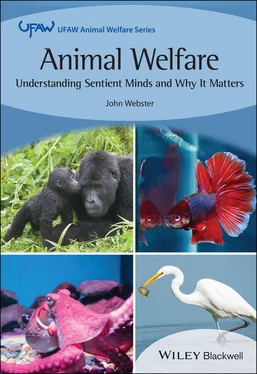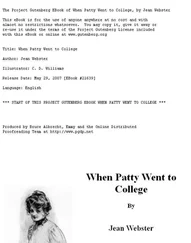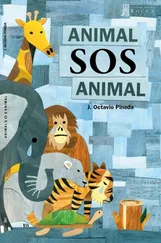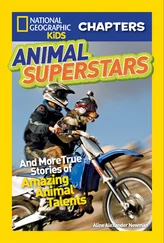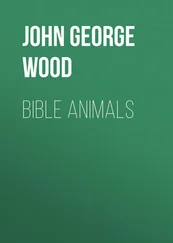John Webster - Animal Welfare
Здесь есть возможность читать онлайн «John Webster - Animal Welfare» — ознакомительный отрывок электронной книги совершенно бесплатно, а после прочтения отрывка купить полную версию. В некоторых случаях можно слушать аудио, скачать через торрент в формате fb2 и присутствует краткое содержание. Жанр: unrecognised, на английском языке. Описание произведения, (предисловие) а так же отзывы посетителей доступны на портале библиотеки ЛибКат.
- Название:Animal Welfare
- Автор:
- Жанр:
- Год:неизвестен
- ISBN:нет данных
- Рейтинг книги:4 / 5. Голосов: 1
-
Избранное:Добавить в избранное
- Отзывы:
-
Ваша оценка:
- 80
- 1
- 2
- 3
- 4
- 5
Animal Welfare: краткое содержание, описание и аннотация
Предлагаем к чтению аннотацию, описание, краткое содержание или предисловие (зависит от того, что написал сам автор книги «Animal Welfare»). Если вы не нашли необходимую информацию о книге — напишите в комментариях, мы постараемся отыскать её.
An Accessible Overview of the Concept of Sentience Throughout the Animal Kingdom and Why It Matters to Humans Animal Welfare
Animal Welfare — читать онлайн ознакомительный отрывок
Ниже представлен текст книги, разбитый по страницам. Система сохранения места последней прочитанной страницы, позволяет с удобством читать онлайн бесплатно книгу «Animal Welfare», без необходимости каждый раз заново искать на чём Вы остановились. Поставьте закладку, и сможете в любой момент перейти на страницу, на которой закончили чтение.
Интервал:
Закладка:
Table of Contents
1 Cover
2 Series Page
3 Title Page
4 Copyright Page
5 Dedication Page
6 About the Author
7 Preface
8 Acknowledgements and Apologies
9 Part 1: The Sentient Mind 1 Setting the Scene Human Attitudes to Animals Animal Behaviour Science Rules of Engagement 2 Sentience and the Sentient Mind Sentience, Consciousness and the Mind The Five Skandhas of Sentience Understanding the Sentient Mind Pain and Suffering Fear and Dread Coping with Challenge: Stress and Boredom Social Life Comfort and Joy Hope and Despair Sex and Love Summary 3 Special Senses and Their Interpretation Vision Hearing Smell and Taste Cutaneous Sensation, Touch Magnetoreception Interpreting the Special Senses Theory of Mind, or Metarepresentation Summary 4 Survival Strategies Foraging Hunting Behaviour: The Predator and the Prey Spatial Awareness and Navigation Breeding Behaviour and Parental Care 5 Social Strategies Sentient Social Life Social Hierarchies: The Pecking Order Communication Cooperation and Empathy Social Learning, Education and Culture Territorial Behaviour and Tribalism
10 Part 2: Shaping Sentient Minds 6 Animals of the Waters Pain and Fear Survival Skills: Hunting, Hiding and Problem Solving Migration Communication and Social Behaviour 7 Animals of the Air Feeding Strategies Migration Sentience and Breeding Behaviour Social Behaviour, Culture and Education Bats 8 Animals of the Savannah and Plains Environmental Challenges Animals of the Open Plains Sheep Goats Cattle Wild Bovidae Feral Horses Elephants Predators 9 Animals of the Forest The Boreal Forest Cervidae Beavers Bears The Tropical Rain Forests Snakes Primates 10 Close Neighbours History of Domestication Artificial Selection and Unnatural Breeding Domestication, Sentience and Wellbeing Pigs Dogs Cats Dairy Cows Horses and Donkeys Chickens Opportunist Neighbours: Rats and Urban Foxes Coda
11 Part 3: Why it matters 11 Our Duty of Care Sentience Revisited Outcome‐based Ethics Death and Killing Farms, Farmed Animals and Food Animals in Laboratories Wild Animals in Captivity Animals in Sport and Entertainment Pets What can We Learn from the Animals?
12 Further Reading
13 General Reading
14 Index
15 End User License Agreement
List of Tables
1 Chapter 10Table 10.1 Threats to the physical and emotional wellbeing of breeding sows ...
2 Chapter 11Table 11.1 Emotional and cognitive expressions of sentience with welfare imp...Table 11.2 Food and farming: the ethical matrix.Table 11.3 Application of the ethical matrix to procedures with laboratory a...
List of Illustrations
1 Chapter 1 Figure 1.1 Cordelia at play. (from Webster, 1994)
2 Chapter 2 Figure 2.1 The five skandhas or circles of sentience. The solid arrows indic... Figure 2.2 The sentient mind. Figure 2.3 Fear, threats reactions and consequences. Figure 2.4 Coping with challenge.
3 Chapter 3Figure 3.1 Goats at salt licks in the Rocky Mountains. Raymond Gehman/Corbis...
4 Chapter 4Figure 4.1 The honeybee’s waggle danceFigure 4.2 Archerfish strike. FLPA/Alamy Stock Photo.
5 Chapter 5Figure 5.1 A murmuration of starlings. Steve Littlewood/Photodisc/Getty Imag...
6 Chapter 9Figure 9.1 A beaver dam and lodge. Note the separate ‘drying‐off’ and sleepi...
7 Chapter 10Figure 10.1 The author relaxing among friends
8 Chapter 11Figure 11.1 Maslow’s hierarchy of human needs
Guide
1 Cover Page
2 Series Page
3 Title Page
4 Copyright Page
5 Dedication Page
6 About the Author
7 Preface
8 Acknowledgements and Apologies
9 Table of Contents
10 Begin Reading
11 Further Reading
12 General Reading
13 Index
14 Wiley End User License Agreement
Pages
1 ii
2 iii
3 iv
4 v
5 xi
6 xiii
7 xiv
8 xv
9 xvi
10 1
11 3
12 4
13 5
14 6
15 7
16 8
17 9
18 10
19 11
20 12
21 13
22 14
23 15
24 16
25 17
26 18
27 19
28 20
29 21
30 22
31 23
32 24
33 25
34 26
35 27
36 28
37 29
38 30
39 31
40 32
41 33
42 34
43 35
44 36
45 37
46 38
47 39
48 40
49 41
50 42
51 43
52 44
53 45
54 46
55 47
56 48
57 49
58 50
59 51
60 52
61 53
62 54
63 55
64 56
65 57
66 58
67 59
68 60
69 61
70 62
71 63
72 65
73 67
74 68
75 69
76 70
77 71
78 72
79 73
80 74
81 75
82 76
83 77
84 78
85 79
86 80
87 81
88 82
89 83
90 84
91 85
92 86
93 87
94 88
95 89
96 90
97 91
98 92
99 93
100 94
101 95
102 96
103 97
104 98
105 99
106 100
107 101
108 102
109 103
110 104
111 105
112 106
113 107
114 108
115 109
116 110
117 111
118 112
119 113
120 114
121 115
122 116
123 117
124 118
125 119
126 120
127 121
128 122
129 123
130 124
131 125
132 127
133 128
134 129
135 130
136 131
137 132
138 133
139 134
140 135
141 136
142 137
143 138
144 139
145 140
146 141
147 142
148 143
149 144
150 145
151 146
152 147
153 148
154 149
155 150
156 151
157 152
158 153
159 154
160 155
The Universities Federation for Animal Welfare
UFAW, founded in 1926, is an internationally recognised, independent, scientific and educational animal welfare charity that promotes high standards of welfare for farm, companion, laboratory and captive wild animals, and for those animals with which we interact in the wild. It works to improve animals’ lives by:
Funding and publishing developments in the science and technology that underpin advances in animal welfare;
Promoting education in animal care and welfare;
Providing information, organising meetings and publishing books, videos, articles, technical reports and the journal Animal Welfare;
Providing expert advice to government departments and other bodies and helping to draft and amend laws and guidelines;
Enlisting the energies of animal keepers, scientists, veterinarians, lawyers and others who care about animals.
Improvements in the care of animals are not now likely to come of their own accord, merely by wishing them: there must be research…and it is in sponsoring research of this kind, and making its results widely known, that UFAW performs one of its most valuable services.
Sir Peter Medawar CBE FRS, 8 May 1957
Nobel Laureate (1960), Chairman of the UFAW Scientific Advisory Committee (1951–1962)
UFAW relies on the generosity of the public through legacies and donations to carry out its work, improving the welfare of animals now and in the future. For further information about UFAW and how you can help promote and support its work, please contact us at the following address:
Universities Federation for Animal Welfare
The Old School, Brewhouse Hill, Wheathampstead, Herts AL4 8AN, UK
Tel: 01582 831818 Website: www.ufaw.org.uk
Email: ufaw@ufaw.org.uk
UFAW’s aim regarding the UFAW/Wiley‐Blackwell Animal Welfare book series is to promote interest and debate in the subject and to disseminate information relevant to improving the welfare of kept animals and of those harmed in the wild through human agency. The books in this series are the works of their authors, and the views they express do not necessarily reflect the views of UFAW.
Читать дальшеИнтервал:
Закладка:
Похожие книги на «Animal Welfare»
Представляем Вашему вниманию похожие книги на «Animal Welfare» списком для выбора. Мы отобрали схожую по названию и смыслу литературу в надежде предоставить читателям больше вариантов отыскать новые, интересные, ещё непрочитанные произведения.
Обсуждение, отзывы о книге «Animal Welfare» и просто собственные мнения читателей. Оставьте ваши комментарии, напишите, что Вы думаете о произведении, его смысле или главных героях. Укажите что конкретно понравилось, а что нет, и почему Вы так считаете.
